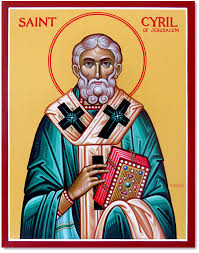HOMILY LENT WEEKDAY 05 01 – Year II
Jesus Reveals a Non-Violent God:
Optional Memorial of St. Cyril of Jerusalem
(Dan 13:1-64; Ps 23; Jn 8:1-11)
**************************************
What is the key difference between the first reading and the Gospel?
Jesus reveals to us a God who is above all non-violent, inviting us to live out a gospel of mercy, compassion and non-violent, unconditional love in our lives.
In the Gospel, the religious leaders appeal to the Law of Moses to stone to death a woman caught in adultery, and publicly shame her. The response of Jesus was to stoop down and write with his finger on the ground. Then he simply said to them, “Let he who is without sin cast the first stone” and wrote on the ground again with his finger. Obviously, the religious leaders caught on to his gesture, because they left one by one, beginning with the eldest.
The question left hanging is – what was Jesus writing, and why did he write on the ground with his finger? The answer to that is found in another question: who else in the bible writes twice with his finger?
The answer is God, who writes the ten commandments on stone and gives them to Moses. Moses then goes down the mountain only to find the people committing idolatry (close to adultery); reacts violently in anger; smashes the tablets; grinds the golden calf into powder; forces the people to drink it, and about 3000 people die that day.
Then Moses self-righteously returns up the mountain, only this time he wants to see God’s face. God tells him he can’t see his face, but God will pass before Moses and he will see God from behind. And as God passes before Moses, God tells Moses who God really is – compassionate, merciful, forgiving to the thousandth generation and loving, So, Moses learns who God really is, and that God is non-violent. Then God writes the commandments with his finger a second time, gives them to Moses, and this time, Moses goes down, has compassion on the people and works with them, accepting them where they are at (always a good pastoral approach), and working with them.
So what Jesus is doing by his gesture is telling the religious leaders, who are appealing to Moses to kill the woman, to learn what Moses learned on the mountain when God wrote twice with his finger – that God is forgiving, merciful, compassionate, loving and above all, non-violent.
This story contrasts with the Old Testament story about Susanna. There, because of the intervention of Daniel, innocent Susanna’s life is spared, but the elders who accused her falsely are stoned instead. This is a Hollywood ending – the good win out, and the bad lose, but there is violence.
What Jesus is showing the religious leaders, and us, is that wherever God is, and wherever Jesus is, there will be no violence, because God is absolutely non-violent. This is true Christianity, and not Hollywood, and what a challenge it is for us. Now Jesus gently looks up at the woman, refuses to shame her, and simply tells her that he does not condemn her either, but to go and sin no more.
The non-violence of God is not an easy lesson for the world to learn. To this day, so much violence is being committed in the name of religion. It took the Christian world centuries to realize that slavery was wrong. St. John Paul II was the first pope in the history of the Church to state categorically capital punishment was wrong, not for political reasons, but because it contradicted the gospel of Jesus Christ, in whose presence there will be no violence.
This gospel story can spur us to be more just, to work for justice, to reach out to the poor and voiceless. Sr. Jean PreJean, author of Dead Man Walking, does that in her ministry – lobbying against the death sentence, knowing that many innocent people have been executed. Sr. Mary Jo Leddy in Toronto provides a home for immigrants and lobbies for their rights, because of the Gospel mandate, all in a peaceful way. Ghandi is perhaps the most famous proponent of non-violence. How ironic that it is a non-Christian who would end up showing Christians how to follow Jesus more closely. A Coptic bishop in the United Kingdom told CNN he had already forgiven the extremists who beheaded 21 Coptic Christians because to not do so would be to live in a downward spiral of anger, revenge and violence.
A negative example is the letter of girl to her father in prison, cursing at him, calling him names, wanting to punish him – doing violence to him through her letter, all with an unforgiving heart.
 St. Cyril, whom we honour today, was born in Jerusalem about 315. He became a biblical scholar and a cleric in the church of Jerusalem, a church troubled by many doctrinal controversies, including Arianism. Ordained about 342, he became bishop of Jerusalem in 350. His famous Lenten instructions, Catecheses, outline his beliefs and the theological traditions of the Jerusalem community. He died in Jerusalem in 387.
St. Cyril, whom we honour today, was born in Jerusalem about 315. He became a biblical scholar and a cleric in the church of Jerusalem, a church troubled by many doctrinal controversies, including Arianism. Ordained about 342, he became bishop of Jerusalem in 350. His famous Lenten instructions, Catecheses, outline his beliefs and the theological traditions of the Jerusalem community. He died in Jerusalem in 387.
The Eucharist makes present the non-violent, unconditional love of Jesus on the cross for us. May our pondering of this word of God today help us to live out the gospel of mercy, compassion, non-violence and unconditional love in our lives.



